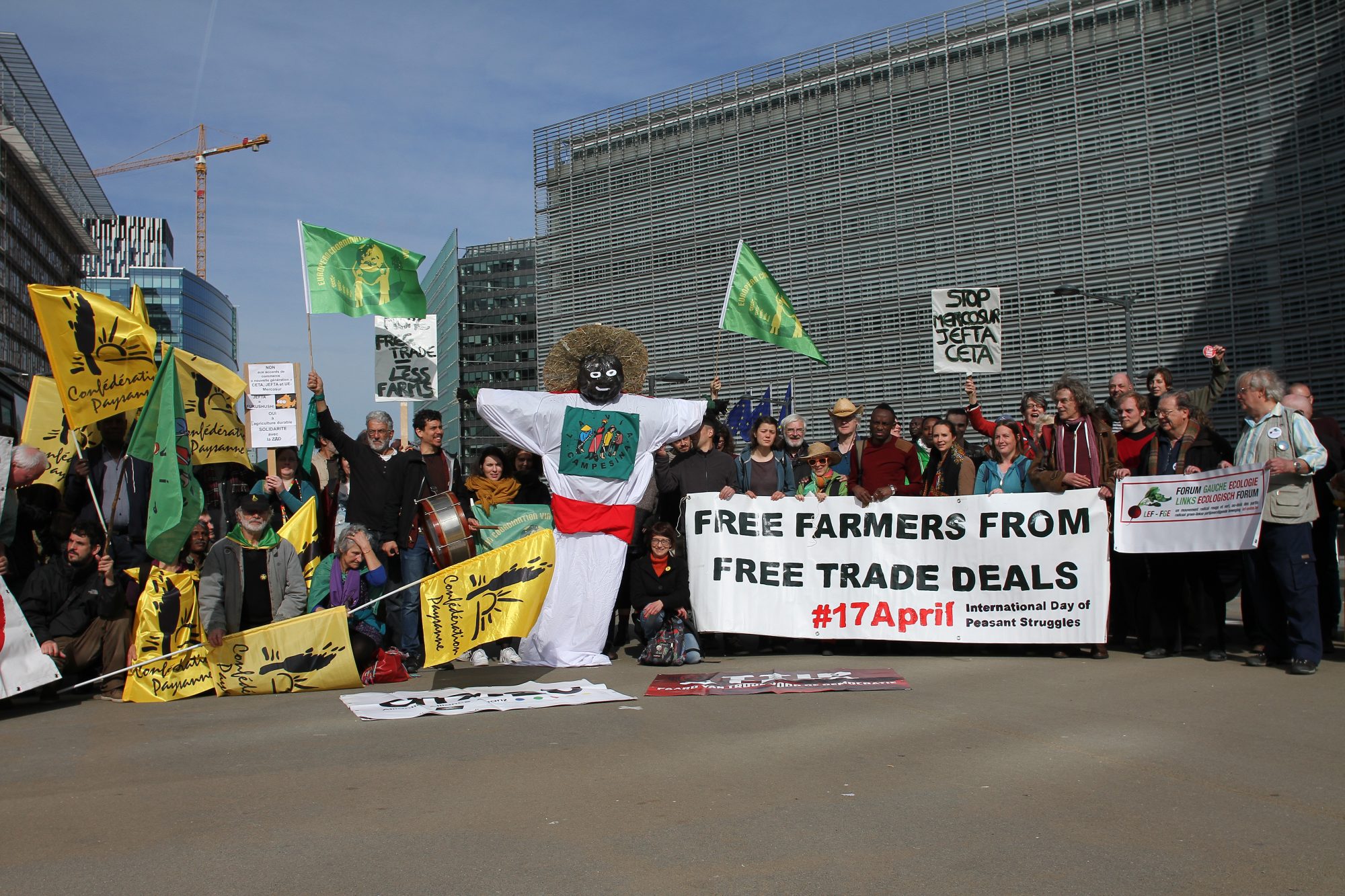In the week leading up to the International Day of Peasant Struggles (17 April), ECVC underlines that Europe needs more farmers to achieve truly sustainable food systems and calls upon policy makers, the general public, and farmers alike to dig deeper into the concept of food sovereignty.
The current Industrial Food Chain uses at least 75% of the world’s agricultural resources and is a major source of GHG emissions but provides food to less than 30% of the world’s people.[i] A sustainable food system thus needs more small-scale farmers, in order to move away from the current concentration of power, control and land that denies farmers a fair and decent income and deprives EU citizens from accessing fresh, healthy, good quality, locally sourced and affordable food.
Over the coming week, through communications to the European Institutions, a new series of infographics and a variety of supporting reports and videos, ECVC demonstrates the key role of small and medium-sized farmers in the resolution of current social, environmental, and food-related crises. This role is particularly relevant in the context of the ageing population of European farmers who will soon begin to retire en masse[ii] and the coronavirus pandemic which has highlighted the fragilities of the global food supply chain.
As highlighted by Andoni Garcia Arriola, member of the ECVC Coordination Committee, the International Day of Peasant Struggles must shine a light on the risk to health, life in rural areas and food security and the lack of food sovereignty that exist in the current system.
“It is not possible to preserve biodiversity and cope with climate change while also feeding the continent with fresh, healthy, local, nutritious, and safe food if the political decisions of our institutions favour models that push for agribusiness and productivity over health and sustainability.”
Morgan Ody, also member of ECVC’s Coordination Committee, also made demands. “The EU must give more support to small and medium farms and strive to incorporate more farmers in European agriculture through concrete measures in the Green Deal, Farm to Fork and Biodiversity Strategies and the CAP. They must stop favouring large-scale, export-oriented industrial agriculture.”
Notes for editors
Read the infographics on Climate, Land, Seeds and Food Sovereignty here. Follow the activities on social media using @ECVC1, #17April2021 and #NoFutureWithoutFoodSovereignty
Contacts
Morgan Ody – ECVC Coordinating Committee – FR, EN
Andoni García Arriola – ECVC Coordinating Committee: ES, EU
Or email press@eurovia.org
[i] Extracted from Who will feed us? ETC Group (2017), which states that “The Chain uses more than 75% of the world’s agricultural land and in the process annually destroys 75 billion tonnes of topsoil and controls the market environment that cuts down 7.5 million hectares of forest. Further, the Chain accounts for at least 90% of agriculture’s fossil fuel use (and GHG emissions) and at least 80% of freshwater use, and leaves us with a bill of $12.37 trillion (for food and damages). It also leaves 3.9 billion people underfed or malnourished.”
[ii] Eurostat, (October 2019) https://ec.europa.eu/eurostat/statistics-explained/index.php?title=Agriculture_statistics_-_family_farming_in_the_EU&oldid=467588#Farm_managers_by_age.

